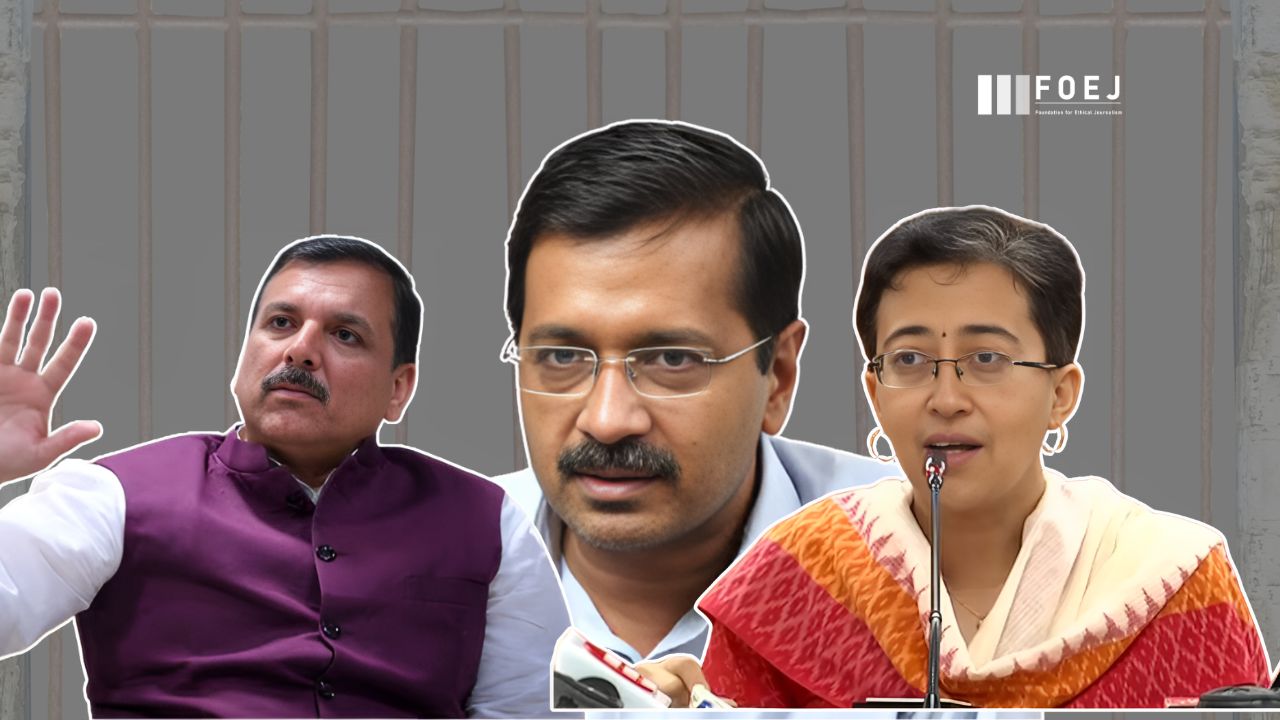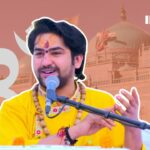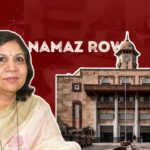Aam Aadmi Party (AAP) members and supporters are currently participating in a communal fast, known as a “samuhik upwas,” to protest Delhi Chief Minister and AAP national convener Arvind Kejriwal’s arrest over the Delhi liquor policy. The Delhi ruling party organized the demonstration, which took place at Jantar Mantar. Prominent AAP figures participated in the Jantar Mantar, New Delhi, demonstration.
The AAP asked party workers to post their photos while observing fasts on a website and also post on X.
“Today from 10 AM onwards, the entire nation will observe a fast against the conspiratorial arrest of @ArvindKejriwal ji. Send us your photos and messages while fasting on this website – kejriwalkoaashirvaad.com. Do not forget to tag us with the photos of your fast on Twitter. Dictatorship will lose, democracy will win,” the post read.
“Back then it was the British government that people were fasting against, today it’s the BJP government..”
The host, Dilip Panday, began the program after recalling the history of the Indian Freedom Movement. He said, “Bapu kept nearly 18 fasts; his longest up was 21 days; not just once, but he kept 21-day fasts three times. He used to say that he keeps these fasts to fight for what’s right; in fact, one of these fasts was against his own arrest by the British government.”
“Back then it was the British government that people were fasting against, today it’s the BJP government…tab Baapu ki bebunyaad giraftaari hui thi aaj arvind ji ki bebunyaad giraftaari hui hai,” he said.
Leaders of AAP, including Sanjay Singh and Atishi, critized the Bhartiya Janata Party government at the demonstration. “I want to tell LG sir, if you believe in the constitution and respect your position, write a letter to start an investigation against BJP’s liquor scam,” said Singh at the protest.
“ED, CBI and Income tax…all are saying Liquor scam, Liquor scam…but who committed the real liquor scam. BJP. I want to tell LG sir, if you believe in the constitution and respect your position, write a letter to start an investigation against BJP’s liquor scam. The BJP took Rs 55 crore of money, and this should be investigated,” he said further. Punjab Chief Minister, CM Bhagwant Mann, will also sit for the fast-protest along with the AAP MLAs and volunteers.
Gopal Rai earlier announced that 25 states across India and key international hubs, including New York, Boston, Toronto, Washington, DC, Melbourne, and London, will extend their support to Kejriwal through community fasting.
Another Plea Filed
Meanwhile, Sandeep Kumar, a former AAP member of parliament, has filed a plea with the Delhi High Court to remove Kejriwal, who is currently in custody, from his role as chief minister of the nation’s capital. On Monday, the matter is set to be heard by Justice Subramonium Prasad.
Kumar’s petition argues that Kejriwal’s incarceration due to allegations by the Enforcement Directorate regarding a money-laundering case associated with the scrapped excise policy for Delhi renders him “incapacity” to carry out the duties of the Chief Minister. According to the plea, Kejriwal’s inability to discharge his duties complicates the constitutional framework, as he cannot serve as Chief Minister while imprisoned.
“Article 239AA(4) of the Constitution provides for the Council of Ministers, with the chief minister at the head, to aid and advise the lieutenant governor in the exercise of his functions in relation to matters with respect to which the legislative Assembly has power to make laws. Aid and advice to the lieutenant governor are practically not possible without the chief minister being a free person available to render his aid and advice under the Constitution,” the petition says.
Previously, the high court had dismissed two public interest litigation pleas seeking Kejriwal’s removal from the chief minister’s post.
On April 4, a bench comprising Acting Chief Justice Manmohan and Justice Manmeet P. S. Arora declined to entertain a PIL on the grounds that it was Kejriwal’s personal decision to continue as Chief Minister.
The court maintained that the matter was beyond the interference of judicial intervention and should be addressed by other branches of the state.









